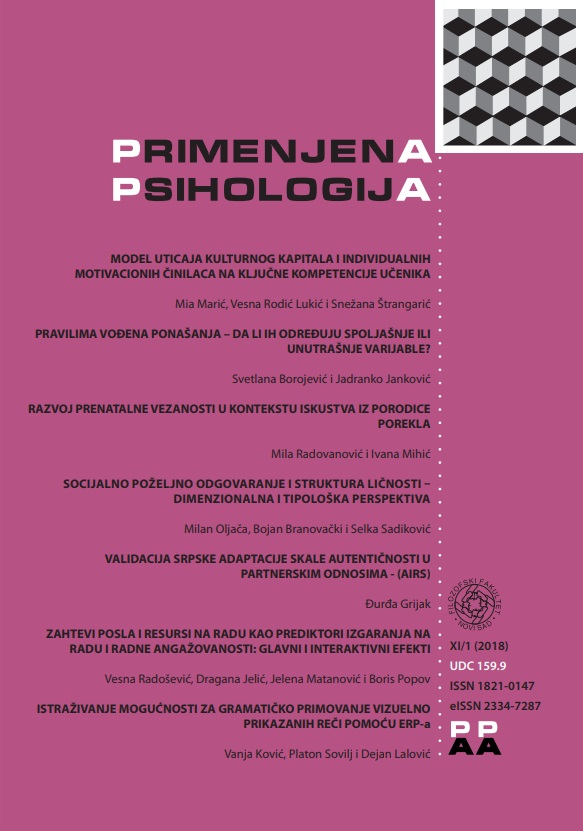MEĐUGRUPNI KONTAKT I MEĐUGRUPNA IDENTIFIKACIJA KAO PREDIKTORI MEĐUGRUPNIH STAVOVA I OPRAŠTANJA U SRPSKOM KONTEKSTU: MODERIRAJUĆA ULOGA IZLAGANJA POZITIVNIM INFORMACIJAMA
INTERGROUP CONTACT AND INGROUP IDENTIFICATION AS PREDICTORS OF INTERGROUP ATTITUDES AND FORGIVENESS IN THE SERBIAN CONTEXT: THE MODERATING ROLE OF EXPOSURE TO POSITIVE INFORMATION
Author(s): Hüseyin Çakal, Nebojša PetrovićSubject(s): Psychology, Inter-Ethnic Relations, Politics of History/Memory, Politics and Identity
Published by: Филозофски факултет, Универзитет у Новом Саду
Keywords: contact; social identity; trust; collective guilt; forgiveness
Summary/Abstract: Intergroup contact reduces prejudice and improves outgroup attitudes, while a salient social identity might have the opposite effects. Recent research has shown that exposure to positive information about the outgroup could influence such effects of the contact and social identity on the outgroup attitudes. Here we investigate the effects of the contact and social identity on the outgroup attitudes, and forgiveness toward the outgroup of Bosniak Muslims among Serbs (N = 400) by randomly al-locating them into control and experimental groups. In the experimental condition, the students were presented with brief biographies of three eminent Bosniak Muslims, in the positive context, after which they com-pleted a survey. In the control group, students were only presented with the survey without the biographies. Subsequent independent samples t-tests showed that the mean values for ingroup identification and inter-group trust were significantly different in the two groups. Specifically, participants who were in the experimental condition, being exposed to the positive information about Bosniak Muslims, reported a higher level of intergroup trust and a lower level of ingroup identification as Serbian. We then performed a multi-group structural equation modeling through which we tested a predictive role of the past contact and in-the group identification on trust and collective guilt in both control and experimen-tal conditions. Across both groups, past contact positively and ingroup identification negatively predicted both intergroup attitudes and forgive-ness via trust and collective guilt. Exposure to the positive information about the outgroup moderated the indirect effects of the ingroup identi-fication on the intergroup attitudes via collective guilt.
Journal: Primenjena psihologija
- Issue Year: 10/2017
- Issue No: 4
- Page Range: 477-497
- Page Count: 21
- Language: English

